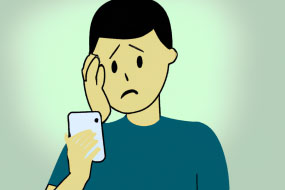
The rise of social media has had a profound impact on the world of politics. While it has revolutionized the way that politicians and citizens interact, it has also created new risks and challenges. In this article, we will explore the pros and cons of online politics and examine how it is shaping the future of democracy.
Pros of Online Politics
One of the biggest advantages of online politics is that it allows politicians to connect with voters in a way that was never before possible. Social media platforms such as Twitter and Facebook give politicians a direct line to their constituents, allowing them to share their views and opinions quickly and easily. This has made it easier for politicians to engage with voters and build a strong, loyal following.
Another benefit of online politics is that it allows citizens to become more informed and engaged in the political process. Thanks to social media platforms and online news outlets, people can now access a wide range of political opinions and perspectives. This has made it easier for individuals to form their own opinions and get involved in politics.
Finally, online politics has made it easier for voters to hold politicians accountable. Social media has given citizens a powerful tool to voice their opinions, and politicians who do not respond to their constituents risk damaging their reputation and losing support.
Cons of Online Politics
Despite its advantages, online politics also has some significant drawbacks. One of the biggest risks is that it can be used to spread fake news and misinformation. Social media platforms make it easy for individuals and groups to circulate false information and manipulate public opinion. This can have serious consequences, particularly during election campaigns when every vote counts.
Another risk of online politics is that it can create echo chambers, where individuals are exposed only to opinions that confirm their own biases. This can lead to a polarized political environment, where it is difficult to find common ground or engage in meaningful debate.
Finally, online politics can be a double-edged sword for politicians. While it offers a direct line to voters, it can also be a liability if used improperly. One careless tweet or Facebook post can damage a politician's reputation and undo years of hard work.
Conclusion
Online politics has transformed the way that politicians and voters interact, offering new opportunities and challenges. While it has made it easier for politicians to build relationships with their constituents and for citizens to get involved in politics, it has also created risks such as fake news and echo chambers. As we move forward, it will be important for politicians, citizens, and social media platforms to work together to ensure that Online politics is used responsibly and ethically, and that it remains a force for positive change.
















